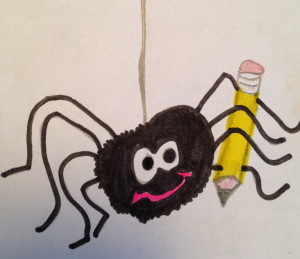 As writers, we often live in the imaginary worlds of our books. Our stories are so compelling, we find ourselves daydreaming about them as we walk the dog, luxuriate in the shower, or gaze out a window. We agonize over every word and make sure to create unique characters, intriguing settings, and twisty plots. But will our readers get it? Will they feel what we feel, see what we see? Maybe – but maybe not. This is why all writers, especially those who write for children, must enlist the help of others.
As writers, we often live in the imaginary worlds of our books. Our stories are so compelling, we find ourselves daydreaming about them as we walk the dog, luxuriate in the shower, or gaze out a window. We agonize over every word and make sure to create unique characters, intriguing settings, and twisty plots. But will our readers get it? Will they feel what we feel, see what we see? Maybe – but maybe not. This is why all writers, especially those who write for children, must enlist the help of others.
There are MANY times when I think I am being perfectly clear in my writing. I am absolutely positive that I’ve given my reader important information, crafted witty dialogue, and conveyed emotion in a way that will captivate my audience. But after sending my work out to my critique group, a brilliant bunch of children’s writers who are well-read and experienced, I almost always discover that this is not the case. Not only will they suggest I rework my plot, deepen my characters’ emotional responses, and make my ending more satisfying, they are confused and have lots of questions. The truth is, we lose perspective as we revise, cut, and polish. I don’t always agree with everything my group says, but they do make me think about my writing. And more often than not, by integrating their suggestions into my work, my story will improve.
This is why I strongly recommend that you find a group of dedicated writers to help you. Before you ever send a cover letter, query, or manuscript to an agent or editor, or enter it in a writing contest, you must revise with feedback. You can find this type of support in the form of a critique group, a trusted and experienced writer who knows your genre, a mentor, a published author, a writing coach, or an editor. Many of the professionals will charge a fee, but it is well worth the investment. There are resources online for these services, and if you write for children, the SCBWI website: www.scbwi.org is a good place to start. If you want to join a critique group, author Hilari Bell recommends a group of 6-8 members. This ensures that you get a wide variety of opinions so you can hone in on common threads. For example, if three or four people think your main character is unlikeable or you don’t tie up loose ends, it’s probably something that should be addressed. The other advantage of a larger group is that there will always be a critical mass at your meetings (online or in person) when life gets in the way (sick children, vacations, other job obligations, etc.).
But not all critique is created equally. Award-winning author and fabulous mentor, Claudia Mills, has said that it takes a village to write a book. In working with her, I learned that getting professional help is invaluable. But in her blog, “How much critique is too much?” she also advises against too much feedback. “It’s so easy for a writer to feel despair at the volume of negative comments on one little book.” In other words, a discouraging critique that deflates you, rather than spurring you on to improving your manuscript, can be counterproductive.
It’s also important to differentiate between negative comments and constructive criticism. There may be times when your critique group says things that might require you to do a tremendous amount of revision. That’s when you have to choose the comments that resonate with you. Some feedback may seem bizarre and you can’t even conceive of implementing the changes. But, rather than discount the feedback immediately (especially if you usually trust and respect the critiquer’s opinion), let the suggestions sink in for a few days before ruling them out.
It is also crucial that you reciprocate by spending time critiquing others. Not only will your colleagues appreciate it, you will learn a great deal about your own writing along the way. In our group, we use the “add comment” feature in Word, which gives the writer very specific notes alongside the manuscript. A written page of general comments is also helpful. Start with positive reactions and things you loved about the story. Follow with constructive criticism; citing specific places that need work and why. And third, lavish the writer with encouragement. An important role of a writing group is to provide support. We must be cheerleaders for our peers and celebrate their process! Oh, and I almost forgot… my critique group, The Story Spinners, highly recommends combining critique sessions with weekend sleepovers that include going on long walks, watching silly videos, eating amazing food, and drinking lots of wine.
